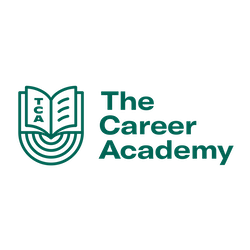How to Use Upskilling for a Career Change

A career change is an exciting, yet daunting, prospect. If you’re looking to take go down a completely different career path, you’ll have to develop new skills and “level up” your existing knowledge and experience for the best chance of success.
Here’s our ultimate guide on how to use upskilling to meet your new career goals.
What does it mean to change careers?
Changing careers is fairly common, whether it’s among recent graduates who realise their “dream job” wasn’t exactly what they thought it would be like, or among seasoned professionals who have developed new passions.
Australian statistics show that the average person will change careers 5-7 times throughout their working life, and we can expect a similar trend in New Zealand as well. With all these career changes, there is also a need to learn and adapt along the way.
Before you can dive into learning new skills, however, it’s important to recognise why you feel the need to change careers.
Signs you should change careers
If the thought of changing careers has crossed your mind, it’s important to identify why you’re really feeling compelled to make a change. Some signs you should reconsider your career pathway include:
1. Your current job does not suit your lifestyle
If the career you started in your 20s involved a great deal of travel, shift work or long hours, you may find that the role is no longer compatible with your lifestyle once you are in your 40s or 50s. Perhaps your job is simply too exhausting for you now or keeps you away from your family. Lifestyle incompatibility is a strong sign that you should be looking out for a new career.
2. You feel burnt out or uninspired
Spending years in the same occupation may have you feeling listless and bored. Perhaps you’re feeling the physical strain in the form of headaches, back pain and lack of sleep. Or perhaps you’re simply bored in your current role because you feel you have outgrown it. Whatever the reason, feeling burnt out or bored means you should be thinking about making a career switch.
3. Your career path is becoming obsolete
Technological advancement is fast making some jobs redundant. If automation has affected, or will soon affect, your line of work, it’s important to start preparing for a new career path. It may be time to look into some short courses to help you upskill in other areas.
Research your new career path
Now that you know you’re ready for a career change, it’s time to start researching your desired line of work to identify what skills are needed. This will help you make the switch with confidence and have the necessary skills to succeed.
It’s important to have an “Instagram versus reality” moment, diving deep into what the job actually entails. Here’s how to thoroughly research your potential new career path:
- Talk to people in the industry to get a true idea of the job, warts and all.
- Try volunteering or taking a crash course in something industry-related for first-hand experience.
- Read industry-specific blogs and books to gain valuable insights. If the dense content intrigues you, it’ll likely be a great fit for you.
- Attend conferences and professional talks to see if you enjoy the topics and conversations, and get along with the other attendees.
Keep your transferable skills and previous experience in mind as well, and try to determine which would be applicable to your new field. For example, will your skills as an administrative assistant carry over wonderfully into a new career as an event manager?
Now that you’ve identified what it takes to get into your dream career, it’s time to start upskilling for the big switch!
All about upskilling
Upskilling refers simply to expanding one’s skillset, typically by developing skills that the job market demands. If you’re looking to change careers, especially later in life, upskilling allows you to develop the current skills that employers are looking for.
According to the latest NZ Government statistics:
TODAY
30%
OF STUDENTS ARE OVER THE AGE OF 40
This shows that more and more people are seeing value in lifelong learning. However, remember that in this day and age, upskilling doesn’t have to mean going back to university full-time – there are in fact a plethora of ways to develop new skills, which we’ll elaborate on below.
To work out which new skills are worth learning, start by researching what skill shortages exist in the field you are looking to enter.
Are there any coding languages you might want to learn, or will you need to get a good grasp on social media to excel in your new role? It’s also smart to build general skills for the digital age, from soft skills like creativity and communication to hard skills like data analysis and cloud computing.
So, how do you actually go about developing new soft and hard skills for your big career move?
Developing soft skills
Soft skills are personal attributes that allow an individual to work well with others and can often be developed without study. Try to:
1. Show initiative
Approach your current employer and ask for more responsibilities to allow you to develop new skills. If your employer does not want to give you new responsibilities due to gaps in your experience or performance, you will have gained valuable feedback on how to improve. You may also wish to offer help to your coworkers.
3. Hone your leadership skills
Large companies may be willing to pay for leadership training, especially for project manager training. Project management is a skill that is needed in practically every industry, setting you up for a successful career move.
4. Get a mentor or cross-train
Try approaching coworkers that you admire to see if you can learn from them. You may even want to formalise this arrangement by asking someone in the office to be your professional mentor.
5. Work on your emotional intelligence
Emotional intelligence is all about nurturing a deeper awareness of emotions and understanding the needs of others around you. This could be done through seeing a therapist, practising meditation or yoga, or frequently reflecting on your emotions.
6. Get creative
Creativity can prove handy in practically any role, so why not have some fun with it by picking up a creative hobby like painting, sewing, upcycling or digital art?
Developing hard skills
When it comes to what will make you employable on paper, it’s all about the hard skills. Hard skills are teachable and measurable and should be updated frequently by way of upskilling to stay abreast of industry and job changes.
- Look at short courses, online courses or other training opportunities.
- Attend professional development, training or networking events to learn new skills in a casual environment.
- Volunteer or participate in a hackathon to develop hands-on experience and skills, as well as get a taste of the industry you’re looking to move into.
What skills should career changers consider?
In order to future-proof yourself and pivot seamlessly into a new area of work, consider developing these in-demand skills:
- Creativity
- Emotional intelligence
- Critical thinking
- Active learning with a growth mindset
- Judgement and decision-making
- Interpersonal communication skills
- Leadership skills
- Diversity and cultural intelligence
- Technology skills
- The ability to embrace change
Consider a lateral career move instead
If your current role doesn’t suit you, you don’t necessarily have to move into an entirely different industry. Look at the current company you work for and see if there are any other areas in the business that you could move into.
Some transferable skills you may already have, or wish to develop to make yourself as indispensable as possible, include communication, analysis, leadership, management, teamwork, collaboration, creativity, critical thinking and adaptability.
Start by speaking with your HR department to explore the possibility of making a lateral move into a different area and seek advice on how best to approach this with internal stakeholders, including your current manager.
If it’s possible to move from career A to career B at your existing organisation, then you might want to consider corporate training or having your employer partially pay for study to prepare you for the move.
Best jobs for career changers
Wondering what roles are particularly well-suited to career changers with plenty of life experience? Here are some popular ideas:
1. Real estate agent
Real estate is a popular industry for career changers, as it can be done as a side job and eventually turn into a full-time endeavour. Obtaining your real estate license usually takes 60-90 hours, with some related job opportunities including underwriting, loan processing and brokerage.
2. Teaching
Given that you’ve now built up a great amount of experience in your previous career path, why not consider teaching in your field? From tutoring on the weekends to becoming a full-time lecturer, teaching is a great pivot for passionate professionals.
3. Writing
Similarly to teaching, a career in writing can be pursued based on what you’re already an expert in. Technical writing, grant writing, finance writing, medical writing, education writing, parenting writing and science writing are all highly sought-after industries that need your expertise.
4. Social media
Similarly to teaching, a career in writing can be pursued based on what you’re already an expert in. Technical writing, grant writing, finance writing, medical writing, education writing, parenting writing and science writing are all highly sought-after industries that need your expertise.
5. Recruitment
With a long career history, you’re in a great position to work on the other side as a recruiter. You’ll know exactly what to look for in a strong candidate!
6. Consultant
Again, consultants are professionals who offer a wealth of knowledge in a specialised field, meaning your work experience will go a long way. If you’re after project-based work instead of a full-time job, consulting will be ideal.
Overcoming challenges during your career change
When changing careers, it’s normal to have some doubts and concerns. However, remember that there are plenty of advantages to making a career change later in life. Many employers actually prefer older workers due to the life experience they bring. This is especially the case in leadership and management positions, as well as roles that involve counselling and mentoring younger workers.
Set yourself up for success by exploring our online courses perfect for upskillers and career changers.
Browse Results
Diploma in Management & Team Leadership
Show you’re management material. Get an accredited Diploma in Management to prove your competency! While many managers are promoted because of their excellent personal performance, this change in role requires the development of new skills to ach…

Administration Pathway Program – Business Administration
Give your admin career a real boost. It’s one of the most highly awarded Administration courses that you could take. This program is for those working in or seeking a Business Administration role. You’ll complete the Certificate in Business Administrat…


Bookkeeping Business Pathway
Launch your bookkeeping business with the option to freelance, subcontract or start your own bookkeeping business. Complete our Certificate in Bookkeeping and then our Start your Own Business Program….


Certificate in Digital Marketing
Discover smart ways to get noticed Explore the nature and scope of online digital marketing with a digital marketing course that covers strategic website design, the psychology of online marketing, how to convert the customers you capture, and differen…

Business Administration Diploma
Take the next step towards a management role! Whether you’re looking to hone your skills, or to progress to a more senior role, our accredited online course will teach you everything you need to know to advance your administration career. You’ll learn…


Certificate in Reception & Office Support
From the front desk to the world Turn office support into an art form. Reception & office support roles play a pivotal role in the running of many businesses. This Certificate in Reception & Office Support ticks all the boxes for putting your b…

Diploma in Child & Youth Counselling
How to change people’s lives for the better. This is a course where you can make a world of difference for children and young people. It’s a fascinating and highly detailed course where you’ll learn about theories of childhood development that include…

Certificate in Accounting
This is a course that ticks all the boxes. The Career Academy Certificate in Accounting will provide you with all the necessary skills to work in an accounting environment. There’s no prior experience needed to do the course. And once you finish, you’l…

Accounting Pathway Program
Become a Qualified Accounting Technician and member of AAT! Fast track your accounting career with The Career Academy. This Program is unique to The Career Academy and specifically designed for those working or who have worked in an entry through to in…


Psychology & Counselling Diploma
Understand the human mind and the counselling process with this internationally recognised qualification. You’ll learn the theory behind the skills and techniques used to successfully help people work through their problems and issues with counselling….

Certificate in Bookkeeping
Learn to balance the books with our accredited course. You’ll be able to prepare GST returns, liaise with the Inland Revenue on behalf of a taxpayer and keep business accounts, as well as learning to analyse and interpret a profit and loss statem…


Certificate in Business Administration
Get that job or promotion with this certificate which is supported by the AdmiNZ. This online course will help you gain practical skills to prepare you for an administration role. The course will give you the immediate knowledge to work confidently in…

Accounts Administration & Payroll Certificate plus Xero and MYOB
Up your practical knowledge and stand out from the crowd with our intermediate online course. You’ll gain skills in accounting, GST, Xero, payroll, Microsoft Excel and much more….


Accounting Diploma
Once you qualify, your job prospects will soar. If you’re eager to enhance your accounting skills, and pursue a career in accounting, finance or business, then this course is a must. It’s an advanced qualification that builds on the practical accountin…


Import and Export Advanced Course
The International Trade (Import – Export) course gives you skills that you can put to immediate use. Whether you are expanding your business into the international market, starting a business or simply looking at working for an international trade comp…

Life Coaching Course
This course provides an opportunity to interact with and learn from very successful, highly qualified and experienced professionals. It also allows you to enter a respected and fast growing professions dedicated to making difference in peoples’ lives….

Catering and Cooking Course
Become a caterer and learn essential cooking skills. This course provides an opportunity to interact with and learn from very successful, highly qualified and experienced professionals and master chefs. It also allows you to enter a profession which wi…

Nursing Assistant Course
The field of Nursing & Patient Care Assisting is a rewarding career for those who wish to work in a profession that gives back to those who need it most….

Dental Assistant Course
Become a Dental Assistant. The course provides an opportunity to interact with and learn from very successful, highly qualified and experienced professionals. It also assists you in pursuing a stable and secure career as a dental assistant….

TESOL Course
There are certain skills you need to become a successful “Teacher of English to Speakers of Other Languages” (TESOL). Also commonly known by the acronym’s TEFL and TESL which are used interchangeably. The ICI TESOL Program helps you learn the required…


